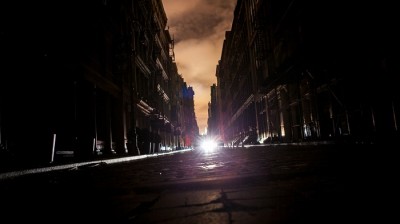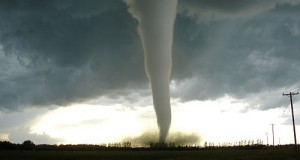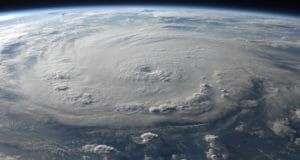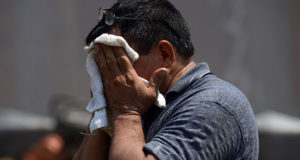The natural instinct to survive and to protect family runs strong in human beings. In the 20th century alone, from Jewish families in Nazi-controlled Europe to Soviet dissenters in frigid Siberian gulags, the will to live burns deeply.
So when a major disaster strikes, the instinct to survive will trump all other considerations. Exactly how far people will go depends on the type of disaster, but an understanding of how they will react will help you prepare to protect yourself and your family in these circumstances.
Let’s look at two kinds of disasters. The first is when there is a regional catastrophe, like an earthquake, tornado or temporary failure of the power grid. In this case, although there will be hardships in the first 24 hours and likely for weeks thereafter, those affected will believe that FEMA and local aid is working hard to help them.
For example, if there was a moderate earthquake in San Francisco, then FEMA and the California National Guard and 100 other agencies would immediately respond. People would be evacuated from the devastated city and relocated to nearby shelter. They would have a place to stay, dry clothing, and enough food to live in relative comfort until they decide to relocate or move back into the city after rebuilding has occurred.
Although there would be localized violence and crime in this scenario, most people would know that aid was coming and the nation would do everything it could to help.
New Lantern Provides 100,000 Hours of Emergency Backup Lighting With No Open Flames
The situation would be vastly different with the second type of disaster. This is when catastrophe strikes and there’s little hope for aid from the government or anyone else.
For example, terrorists or a rogue nation launch an EMP attack, and the nationwide power grid is down long-term. Or, a major solar storm takes out the grid.
In those scenarios, police won’t arrive because the pumps don’t work and there is no gas. The government can’t help because it, too, is without power and gasoline. Millions of people would be desperate, and most of the nation’s food would spoil in a matter of days.
As the EMP Commission to Congress said in its report:
Essentially every aspect of American society requires electrical power to function. Contemporary U.S. society is not structured, nor does it have the means, to provide for the needs of nearly 300 million Americans without electricity. Continued electrical supply is necessary for sustaining water supplies, production and distribution of food, fuel, communications, and everything else that is a part of our economy. Continuous, reliable electrical supply within very tight frequency boundaries is a critical element to the continued existence and growth of the United States and most developed countries.
In this type of scenario, where there is a total breakdown in society, there would be no hope of the government swooping in and providing food and shelter. People would quickly realize that it’s everyone for themselves, and the survival instinct would kick in.
Many survivalists believe that in the weeks after this type of disaster occurs, people in urban areas will form groups for mutual survival. Many of these groups will be run by the strongest —the person with the most weapons, supplies and charisma. They will form roving bands and prey on the weak and those who can’t defend themselves.
But in the first 24 hours, before these marauding bands have time to form, individuals will have the immediate goals of water, food, safety and shelter.
New Survival Energy Product Makes Every Window A Powerful Solar Charger
Although everything depends on where a person lives (in an urban environment or rural property), let’s assume it’s a typical suburban location is near one of the major cities. Within hours, stores will be empty.
Water
Most water in suburbs is pumped to households from water treatment plants. In many large urban areas, like Los Angeles and Las Vegas, there are no local sources of surface water. That means water in storage tanks or from stores is the immediate goal. Survival instincts will kick in and the strong will take water from the weak. Bottled water will vanish.
Food
Most people will have at least one or two days of food that can be eaten, but those strong enough and desperate enough will probably take food from the weak and from stores the same time they’re looking for water.
Fleeing
In the first 24 hours, millions of people will realize there’s simply not enough resources to survive. They will decide that they need to flee to surface waters, and head out to lakes or rivers, whether they be 10 miles or 100 miles away. In the case of an electromagnetic attack, most vehicles manufactured after 1973 would not operate, but if you have a bike or old diesel tractor, someone with a gun will be coming to take it. In those scenarios where vehicles still work, the strong will commandeer vehicles and any stored gasoline they can find.
Anyone in the path of these people will be in danger.
A dreary and negative picture of humankind is painted here, so let me acknowledge that during the first hours and days of a society-changing disaster, many people will band together and try to help each other and make sacrifices for the good of the whole. However, these worthwhile people are not the threat, and therefore not the point of this article.
Instead, realize that a fraction of humanity will not band together in a Christian way for mutual benefit, but will revert to the most basic instincts of survival and protection of loved ones. It is against these people that you need to be prepared to defend against in the first 24 hours, and the weeks thereafter, once disaster strikes.
Do you agree? How do you envision the first 24 hours after a grid-down scenario? Share your thoughts in the section below:
After An EMP, Could You ‘Live Off The Land’ With Your Gun? Read More Here.
 Off The Grid News Better Ideas For Off The Grid Living
Off The Grid News Better Ideas For Off The Grid Living





